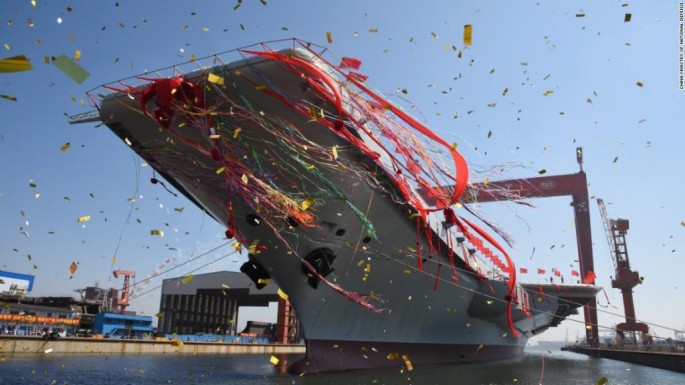The Ministry of National Defense launched a domestically built aircraft carrier second to the Liaoning, an old Soviet-built ship that was extensively refurbished in 2012.
The new carrier is yet to be named and has a size that can match up to its English and American counterparts. The Chinese carrier has a capacity to carry 60 planes like those owned by the Americans.
Queen Elizabeth, the aircraft carrier of England, has a capacity of 40 planes. The Russian carrier can carry 50 planes.
The new Chinese carrier started construction in 2013 and will be formally commissioned in 2020. The ship will be undergoing trials and will still need air complements.
The launch of the aircraft carrier is part of the intensified military program pushed by President Xi Jinping and a naval expansion that will operate in the South China Sea.
Michael Chase, an expert on the Chinese military at U.S. think tank the RAND Corporation, thinks that the aircraft carrier will be impressing much Chinese locally as well as the international community.
Chase said, "The new carrier is likely to be seen as further evidence of China's desire to become the most powerful and influential country in the region."
Ian Easton, a research Fellow at The Project 2049 Institute in Arlington, Vermont, thinks that China is starting to show aggressive efforts in the South China Sea and will undermine the military capabilities of Japan and Taiwan.
However, Geng Shuang, the spokesperson for China's foreign ministry, said that the country is purely defensive and "sticks to the path of peaceful development."
He added, "The purpose to develop national defense forces including the navy is to safeguard our national sovereignty, security, and development interests, as well as the peace of the world."
The new aircraft's predecessor, the Liaoning, was a ship that was purchased from Ukraine. China then said that it was purchased for experimental purposes but was later engaging in live-fire exercises in the South China Sea.




























